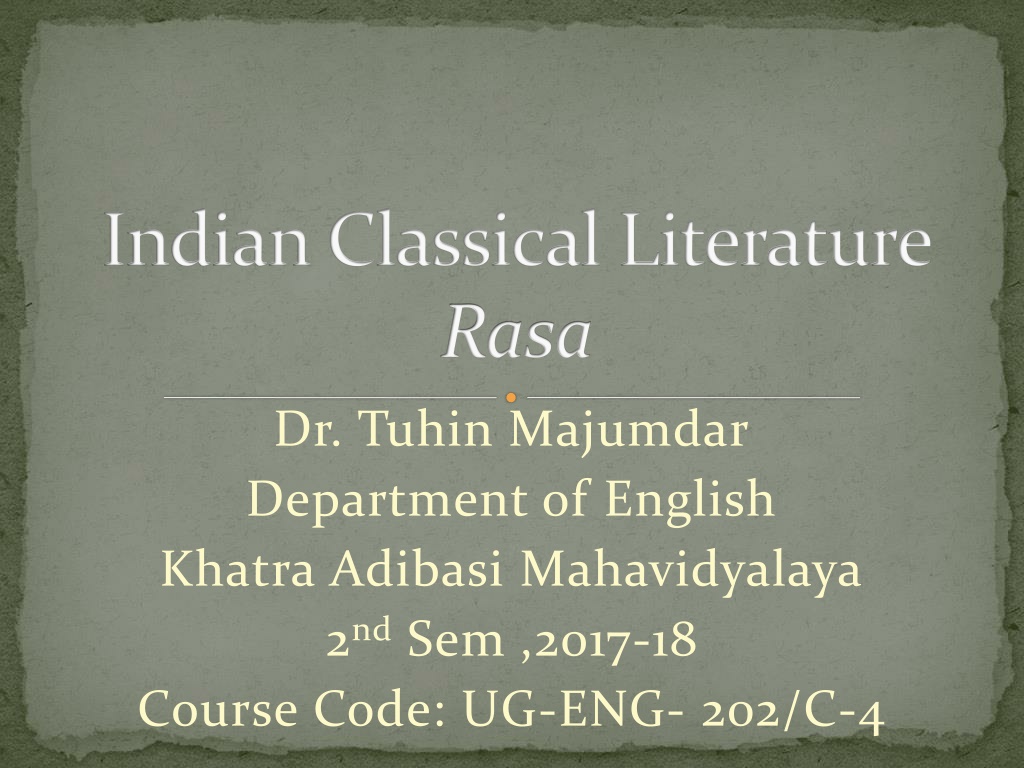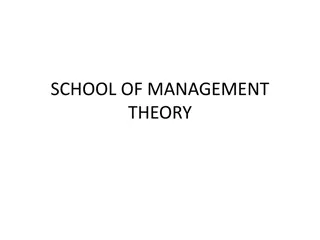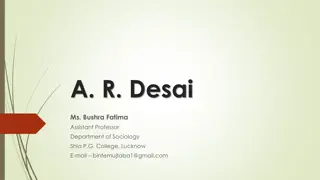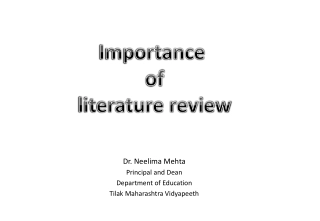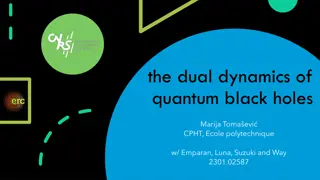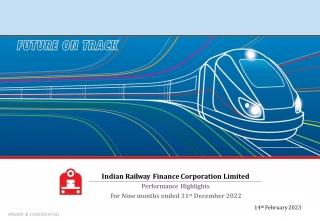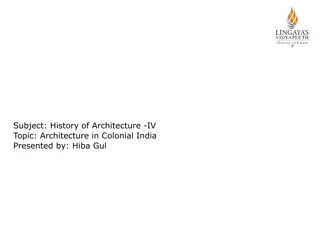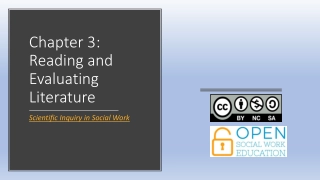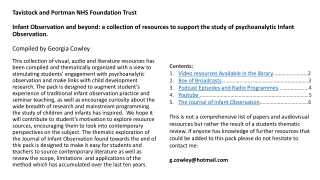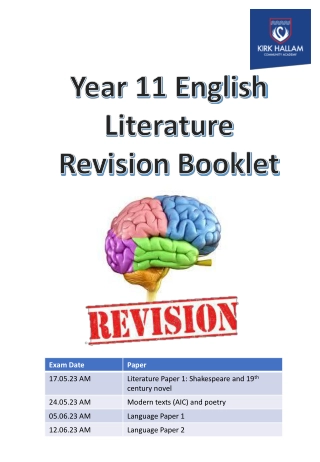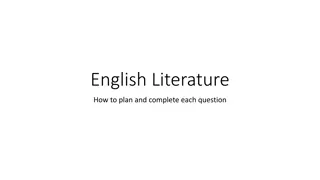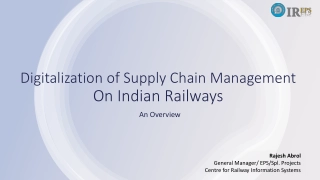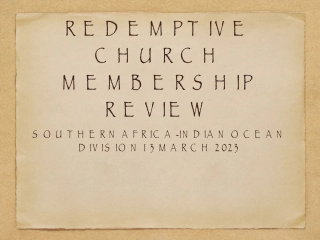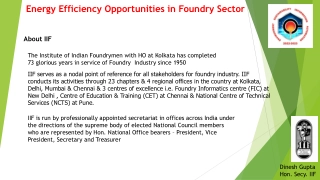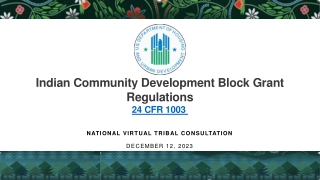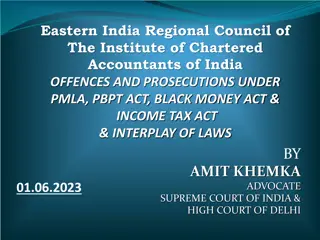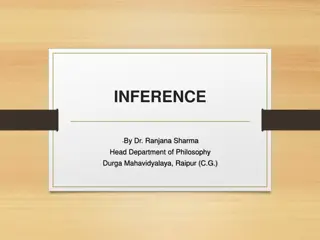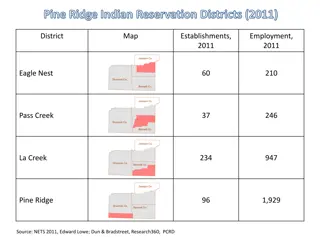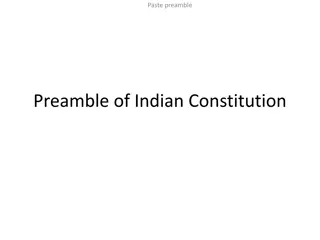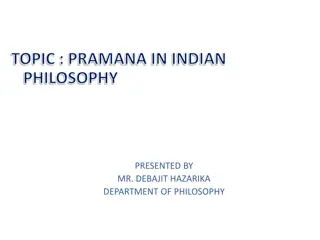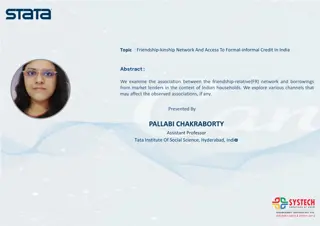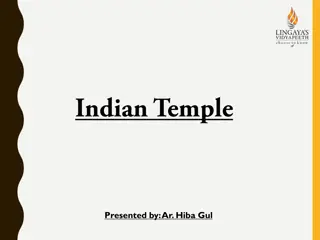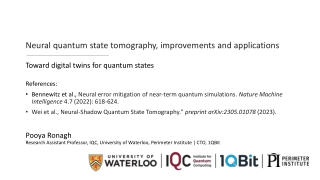Indian Classical Literature Rasa
The profound concept of rasa in ancient Indian arts, from Bharat Muni's Natyasastra to the realization of rasa through psychological states. Learn about determinants and consequents shaping emotional experiences on stage and beyond. Delve into the rich cultural heritage of Indian aesthetics.
Download Presentation
Please find below an Image/Link to download the presentation.
The content on the website is provided AS IS for your information and personal use only. It may not be sold, licensed, or shared on other websites without obtaining consent from the author. Download presentation by click this link. If you encounter any issues during the download, it is possible that the publisher has removed the file from their server.
Presentation Transcript
Indian Classical Literature Rasa Dr. Tuhin Majumdar Department of English Khatra Adibasi Mahavidyalaya 2ndSem ,2017-18 Course Code: UG-ENG- 202/C-4
Bharat Muni & Natyasastra The pole star of Indian aesthetics, Bharat Muni, mentions rasa in chapters VI and VII monumental Natyasastra, which is a compendium of performing arts the word of his work
Rasa: Connotations Rasa has been translated etymologically by the terms flavour , relish , taste or saveur . According to Bharata, that which is relished is rasa . It ranges from the Aryan s drinking of the soma juice to theyogis communion with the metaphysical Absolute. According to Pramod Kale, Bharata s rasa theory: a framework of rules and regulations, to explain and achieve an effective communication, a rapport between the performers and the spectators.
Rasa-nispattih Rasa is produced/realized (rasa-nispattih) from a combination (samyoga) of Determinants (vibhava), Consequents (anubhava) Psychological States (vyabhicaribhava); and their union with the sthayibhava (Durable Psychological State). and Complementary Just as the taste results from a combination of various spices, vegetables and other articles, similarly the Durable Psychological State when combined with other Psychological states culminates into rasa wherein no constituent is experienced separately but all together are experienced as one whole being.
Determinant (Vibhava) Determinant (Vibhava) is synonymous with Karana (cause), nimitta (instrument), hetu (reason). It determines the emotions and moods to bearoused in the readerorspectator. G.B. Mohan is of the opinion that it may be described as Eliot s objective correlative. Alambana vibhava (Dependent) is the person or the object which is primarily responsible forthe arousal of emotions. The Uddipana vibhava (Excitant) is the environment which stimulates the emotiveeffectof the focal point. In Kalidasa s Abhijnana Sakuntalam, when Dusyanta falls in love with Sakuntala at the hermitage of Kanva, Sakuntala becomes the Alambana vibhava and the entire forest with beautiful hermitage and pleasant breeze servesas Uddipana vibhava.
Consequent (Anubhava) Consequent (Anubhava) is the external manifestation of the provocation of the Sthayibhaba. It is so called because what is represented on the stage is made to be felt and experienced by the spectators. There involuntary. are two types of anubhava voluntary and The voluntary anubhava is the movements of eyes and eyebrows which are supposed to be willful expression of our emotion for its propercommunication. The involuntary anubhava is the change of colour and blush which automatically arise following the emergence of emotion in our heart.
Complementary Psychological States (Vyabhicaribhava) Vyabhicaribhava does not have an independent status of its own. It acts just as the feeder of the Sthayibhava and strengthens it. There are thirty three Complementary Psychological States, someof which are: Despondency (nirveda) Weakness (glani) Apprehension (sanka) Envy (asuya) Anxiety (cinta) Death (marana) Cruelty (ugrata) Joy (harsa) etc.
Complementary Psychological States (Vyabhicaribhava) And he repulsed .. Fell into sadness, then into a fast, ..thence into a weakness . Thence to a lightness, and by this declension Into the madness . Polonius in Shakespeare s Hamlet describes the impact of Ophelia s separation on Hamlet through these lines. These frequent changes shown in the physical as well as the mental states of Hamlet are nothing but the vyabhicaribhava.
Durable Psychological State (STHAYIBHAVA) According to Bharata, there are eight Sthayibhava Love (rati), Laughter (hasya), Sorrow (soka), Anger (krodha), Energy (utsaha), Fear (bhaya), Disgust (jugupsa), Astonishment (vismaya). P.V. Kane elucidates that Sthayibhava is like the ocean which is ocassionally disturbed by other bhavas but always retains its own position. It does not loose its individuality and finally matures into rasa. Bharata opines that Sthayibhava is like the king whereas other bhavas are like subjects. It exists permanently in our mind, says R. Gnoli, in the form of latent impressions derived from actual experiences in the present life or from inherited instincts .
Sentiments (Rasa-s) According to Bharata, there are eight sentiments (rasa-s): Erotic (srngara) Comic (hasya) Pathetic (karuna) Furious (raudra) Heroic (vira) Terrible (bhayanaka) Odious (bibhatsa) Marvellous (adbhuta) Bharata in chapter VI of Natyasastra explains the Sthayibhavas of eight sentiments; their complementary psychological combination leading to the realization of rasa. determinants, states and consequents, their nature of
THE EROTIC SENTIMENT (Srngara rasa) Durable Psychological State Love (rati) Determinants Pleasant seasons, Beautiful garlands, Fine ornament, Company of intimate fellows Consequent Represented on the stage are clever movement of the eyes, eyebrows, glances, soft and delicate movement of limbs, sweet and pleasant words There are two types of Erotic sentiments union (Samyoga) and separation (vipralambha). Consequents of separation (vipralambha) fear, jealousy, fatigue, anxiety, dreaming, insanity, indifference
THE COMIC SENTIMENT (Hasya rasa) Durable Psychological State Laughter Determinants putting on unusual dress, quarrel, uncouth behaviourand use of irrelevant words Consequents opening the eyes wide or contracting them, perspiration, throbbing of lips and nose etc Complementary psychological states indolence, dissimulation, insomnia, envy etc.
THE PATHETIC SENTIMENT (Karuna rasa) Durable Psychological State Sorrow Determinants Suffering under a curse, separation from or loss of dear ones, commotion caused by death, captivity, reversal of situation and other misfortunes Consequents heaving of sigh, shedding of tears, paralysis, loss of memory etc. Complementary Psychological States Epilepsy, depression, languor, anxiety, dejection, distraction death, insanity etc.
THE FURIOUS SENTIMENT (Raudra rasa) Durable Psychological State Anger (krodha) Determinants indignation, rape, insult, false allegation, revenge etc. Consequents biting one s lip, red eyes, trembling, frowning, drawing of weapons etc Complementary Psychological States indignation, intoxication, restlessness, fury, horripilation etc.
THE HEROIC SENTIMENT (Vira rasa) Durable Psychological State Energy (utsaha) Determinants good conduct, determination, courage, discipline etc. Consequents firmness, pride, patience Complementary Psychological States pride, contentment, judgment etc.
THE TERRIBLE SENTIMENT (Bhayanakarasa) Durable Psychological State Fear (bhaya) Determinants loss of courage, sight of ghosts, death, terrible cries of owls and jackals, staying in an empty house or forest Consequents trembling, sweating, fainting etc. Complementary Psychological States depression, distraction, stupefaction, palpitation, dryness of lips etc.
THE ODIOUS SENTIMENT (Bibhatsa rasa) Durable Psychological State Disgust Determinants disgusting sight, taste, smell and sound which create uneasiness Consequents contraction of mouth and eyes, covering the nose, spitting, vomiting etc. Complementary Psychological States epileptic fit, agitation, sickness etc.
THE MARVELLOUS SENTIMENT (Adbhuta rasa) Durable Psychological State astonishment (vismaya) Determinants supernatural things and illusions. Consequents exclamation of surprise, weeping, stammering etc. Complementary Psychological States sentiment are joy, agitation, choking voice etc.
Santa Rasa The admission of Santa rasa as the ninth rasa has led to a good deal of controversy among critics. However, Abhinavagupta considers it as maharasa . Sthayibhava sama Determinants pursuit for spiritual knowledge and freedom from worldly desire. Consequents Meditation, devotion, recognition of truth etc. Complementary psychological states courage, fixity etc.
Conclusion Rasa is therefore regarded as the cardinal principle of Indian aesthetics. Rasa, which came to be understood as the ultimate aesthetic delight experienced by the reader/listener/spectator, is regarded as the touch-stone of any creative art. Both in Drama and in Kavya, Rasa is not a mere means but is the desired end or objective that is enjoyed by the the cultured spectator or the reader.
